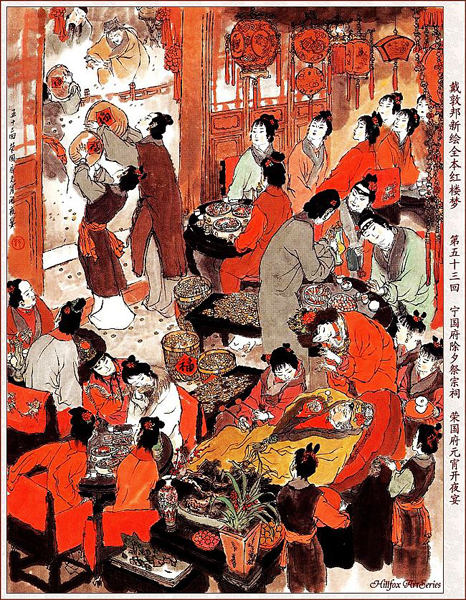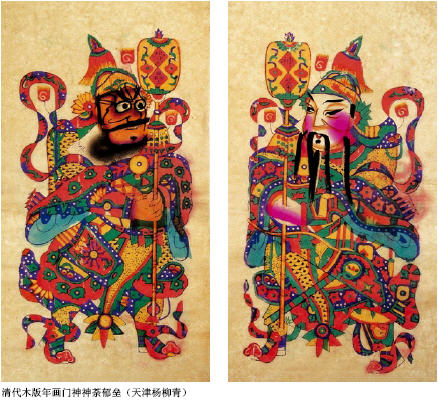 |
|
The maids are busy hanging the lanterns with the character Fu on them – an illustration of A Dream of Red Mansions by Dai Dunbang. [Photo/ntdtv.com] |
 |
|
Portraits of the Door Gods. [Photo/showchina.org] |
Couplets and Door God
"By the twenty-ninth of the twelfth month all was ready. Both mansions were resplendent with new door-gods, couplets, tablets and New-Year charms." (Chapter 53, an English translation of A Dream of Red Mansions by Yang Xianyi)
As early as the Qin and Han dynasties, there was the custom of hanging Taofu (peach wood charms) namely, two peach wood boards. People believed that each of them dispelled evil spirits. During the Ming Dynasty, people began to replace the peach wood board with red paper, hence giving rise to the couplets we see today.
The couplet consists of two lines written on vertical strips of red paper, the upper line is posted on the right side of the front door, the second line is posted on the left, and a third horizontal piece is posted across and on top of the door.
Besides couplets, the portrait of two door gods is also an indispensable decoration for the lunar New Year. The custom originated in the Tang Dynasty when Emperor Tang Taizong honored two of his loyal generals – Qin Shubao and Yuchi Jingde by hanging their portraits on the front door of his palace. Later on, ordinary people adopted the imperial custom, and it is believed that they can protect the household from evil spirits.
Today, people post the Chinese character Fu, meaning blessing or fortune, instead of the door gods, what is more important is that the character is usually posted upside down meaning that the fortune has arrived at the household and brought the blessing for the next year.
|
|
|
|
|
|
